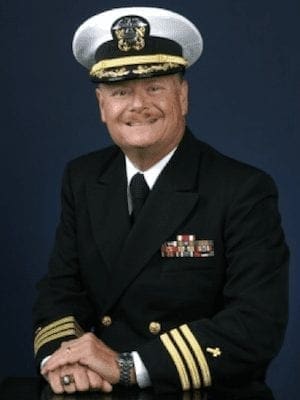A pastor new to his church removed the American flag from the sanctuary.
He received a death threat as a result. His leadership in that church was brief and unhappy.
Meanwhile, at another church, a patriotic holiday rolled around. So did the military hardware. The flag was not only prominently displayed, it was paraded into the church parking lot on a combat vehicle.
Many applauded enthusiastically but not all. Some potential visitors left in disgust, wondering what had happened to the worship of the Prince of Peace.
Stories like these make worship leaders wince as they face with dread the most emotion-laden dates of the year – the big three: Memorial Day, Independence Day and Veterans Day.
For some, the answer has been a wholesale embrace of nationalistic religion. In that ethos, there is no distinction between American and Christian.
Others, while attempting to acknowledge the worldwide Christian communion and a separate church and state, have either gone along uncomfortably with patriotic elements in worship or avoided them all together.
As a pastor, I have developed an approach to these annual events that helps my congregation understand and celebrate their patriotism without compromising their ultimate allegiance to Jesus.
In order to do this, I am aided by the fact that I am both an educated and ordained Baptist minister, but I am also a naval officer who has served more than 22 years in the Chaplain Corps.
Soon Memorial Day weekend will appear on our planning calendars.
If you, like me, are a follower of the church calendar, then the Sunday preceding the Monday Memorial Day observance is designated as the Seventh Sunday of Easter.
One event honors those who have fallen in the service of their country while the other focuses upon the glorified Jesus and his ascension into heaven.
There is no question in my mind that the focus of Jesus worship is Jesus. Yet I am also aware of the deep emotion we have for those who have through their military service given their lives as a sacrifice for us all.
While Sunday worship is not actually on Memorial Day, many within our congregations expect some patriotic acknowledgement should be made as part of regular worship.
Each congregation is unique; however, a few practices have helped me keep the proper focus of worship when these patriotic occasions meet the worshipful moment.
Here are three principles to keep in mind in preparing for these events:
1. Don’t be afraid to lead.
Take the initiative and plan ways to properly include and acknowledge the contributions made by veterans and others who have served their country in some special way. There may be those who want to add their input, but as pastor or worship leader you can and must help worship stay worship.
2. Understand the symbols.
Research and become familiar with the symbolic representations and how they are best suited in worship. The way flags are displayed and the exclusion of weaponry from the sanctuary are established protocols.
This may require a moment of education for certain members of the congregation who are not aware that the symbol of the Christian faith (a Christian flag or cross) in the context of worship takes precedent over every other symbol, including the national ensign.
The presence of weapons inside the sanctuary is inconsistent with the nature of worship as well as established military instruction.
This is most typically a conflict of symbols seen when a local color guard parades the colors into the sanctuary when a worship service is underway. The ceremonial rifles are best left in the foyer.
3. Be both the pastor and the prophet.
You can care for your members while remaining true to the gospel.
I like to think of the paradigm of the funeral service that includes a eulogy for the deceased but always focuses upon the hope of the resurrection.
The emotions people have are important, but the occasion can easily prompt a deeper conversation into the importance of church-state separation, the equality of all human beings, the importance of being a peacemaker and other vital Christ-following themes.
This Memorial Day weekend, find the connections that minister to the people of God in your community. Be a blessing and guide to the people you are called to shepherd.
Charles McGathy was commissioned as a naval officer in the Chaplain Corps in 1984 and spent 22 years serving the men and women of the sea services on three continents and at sea. He retired at the rank of commander in 1996 and answered a call to serve as the pastor of First Baptist Church of Madison, North Carolina.
Editor’s note: This article is part of a series of articles for Memorial Day 2017.
Commander Charles “Chuck” McGathy served in the Chaplain Corps of the United States Navy for 23 years. He has been the pastor of First Baptist Church of Madison, North Carolina, since 2006.

